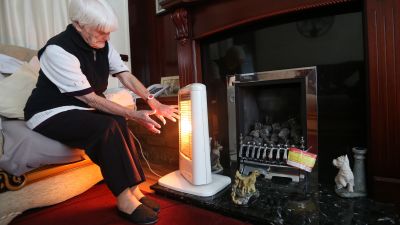How to make savings around the house in the face of cost-of-living crisis

The rising cost of living is placing increasing pressure on household budgets, especially as temperatures falls and Christmas, with its associated costs, approaches.
But there are things you can do around your home to save money that might seem small but can add up to some vital savings.
Here is a rundown of the action you can take in your home.
Unplug anything you don’t need
Energy bills have risen sharply this year, direct debits have soared and households are feeling it with many scared to put on the central heating as a mild autumn gives way to a single digit temperatures.
Electricity is also very expensive and it’s worth taking a few minutes to go from room to room, checking what’s plugged in and what can be switched off.
Children's bedrooms are also likely to harbour devices plugged in and forgotten. It may save just pennies now but they’ll soon add up and energy bills are only going in one direction.
Do you need that second fridge/freezer?
One appliance that is doing your energy bills no favours is a second fridge or freezer, especially if it’s kept in the garage.
They are likely to be older and therefore less energy efficient to start with, and the lack of insulation out there may end up forcing it to work harder just to keep the contents cold. If possible, get rid of it.
Use your appliances more sparingly and efficiently
Always make sure the washing machine and dishwasher are full before using them and check the settings.
Sarah Coles, senior personal finance analyst at Hargreaves Lansdown, said: “One of the easiest ways to save money is to dig out the manuals for things like the dishwasher and washing machine.
"We tend to use the same couple of cycles without thinking about it, but most of the energy is used in heating the water, so if you can track down an eco wash, or a cold wash, you can shave a fifth of the energy use each time.”
Only boil as much water in the kettle as you need each time and don’t use larger pots on the hob than required, remembering to cover pans with a lid to keep the heat in.
Commit to ditching the clothes dryer. When sun is forecast, get a load of washing in the machine the day before and hang it out to dry.
Heat the human, not the home
This has become something on a mantra as eye-wateringly soaring energy costs mean some people can not afford to turn on the heating.
Heating a room is not the most efficient way to stay warm, particularly in the UK's leaky houses.
Wear the right clothes - thermals, jumpers and socks - and consider electric blankets, heat pads and footwarmers.
Octopus Energy said their electric blanket scheme - where they gave away electric blankets to people who needed them most, saved customers £300 on their energy bills
Analysis by the company's data team, which looked at the smart meter data of 4,190 customers who opted into the scheme, showed that customers who received electric blankets reduced their energy bills by 19% compared to a control group.
In the kitchen
Slow cookers can help with cheap batch cooking, when you prepare enough for a meal that day, a few days ahead and also for freezing. It will also economise the supermarket shop and possibly even cut the temptation to order a takeaway on busy days.
Those who own a microwave could consider using it for long cooker jobs such as baking potatoes – they take a fraction of the time and will cost less to use, despite their high wattage.
Personal finance expert, Lynn Beattie aka Mrs Mummy Penny, swears by drawing up a weekly meal planner, that she says helps to cut down on costs and waste.
Cut food waste
Know where to store food such as bananas, eggs and bread to avoid wasting food and know the difference between ‘use by’ and ‘best before’ dates.
A recent Wrap study found that uncut fresh produce could be good to eat long after the best before date, and most items lasted longer in the fridge.
When stored at 4°C, apples showed no signs of deterioration until two and a half months after their best before date and were still good to eat for some time after that, researchers found.
Use a programmable thermostat - at a consistent temperature
Energy Assessors DEAs recommend setting to 15-16 degrees at night and 18-20 degrees during the day, depending on activity levels.
This could save you a minimum of £127 a year per degree, they say.
Make the LED switch
Every 75-watt incandescent bulb replaced with an LED can save around £10 a year, based on 503.5 hours' average per year - the amount for a typical kitchen or lounge. Switching 10 bulbs to LED will save you £100.
Block out draughts
For doors, use draught excluders, cover keyholes, use letterbox flaps or brushes and fit brush, foam or wiper strips around to fill gaps. Use strips for windows and a chimney draught excluder for unused fireplaces.
For a quick DIY draught excluder, Lynn Beattie suggests using a pair of tights stuffed with old clothes.
Keeping out the draught could save up to £125 a year.
Want a quick and expert briefing on the biggest news stories? Listen to our latest podcasts to find out What You Need To Know
Find your nearest warm space
Warm banks are spaces where people can gather to protect themselves from the sky-high price of heating their homes.
Website Warm Spaces is a "one stop shop" to guide people to where they might find some warmth this winter in their local community.
Pubs, community centres, church halls and coffee shops are among places that have already signed up, with people able to find their nearest space using the website's interactive map.